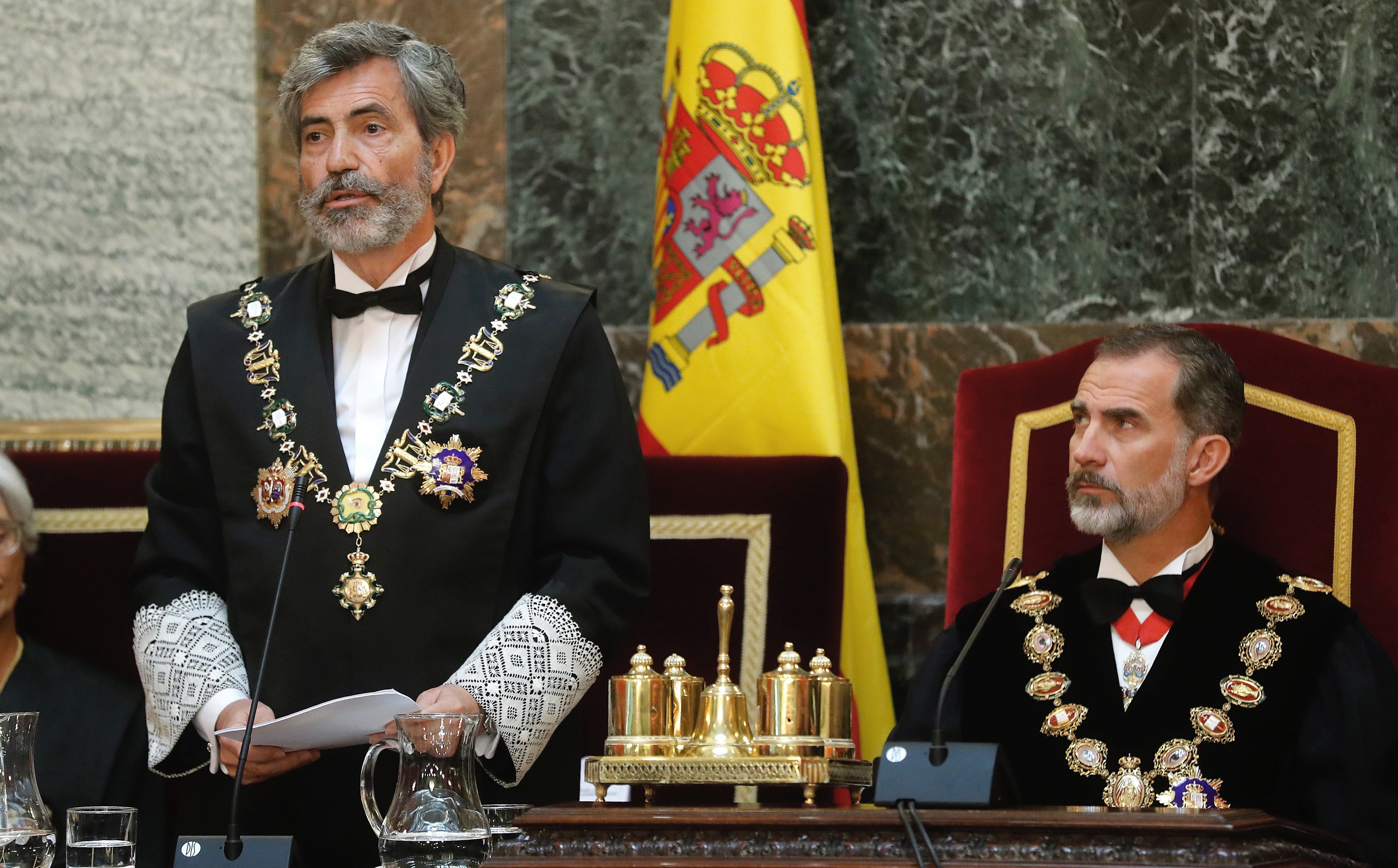The president of Spain's General Council of the Judiciary and Supreme Court, Carlos Lesmes, has attacked the European courts who decided against extraditing the Catalan politicians in exile on charges of rebellion. He made the comment at the ceremony to start the legal year, one of the most important of the year, with all the legal powers represented and presided over by the king.
Lesmes said that "autonomous" legal precepts have been interpreted "unilaterally", causing "great uncertainty". "These decisions have caused the widespread perception of an unforgivable loss of efficacy of certain tools of legal cooperation," he said. The president defended "a strong, united, solidary Europe", which, according to Lesmes, "has to consolidate its leadership through the values of the rule of law and, for this reason, given the difficulties, our justice system is called upon to safeguard the Constitution, precisely being the most intense expression of our commitment to Europe".
He defended the Constitution and said that when "it's hit, it cannot renounce defending itself" and admitted that, 40 years after the Constitution was introduced, the Spanish state is experiencing one of the "most delicate moments of its recent history". He also said that the attacks on the Constitution make the legal power "stronger".
In his speech, Lesmes associated the independence movement with "post-truth" and said that the actions of the justice system have avoided greater damage being caused. "In the face of post-truth, which pursues impunity under the apparent cover of the popular will, the public has to realise that the response from the judiciary is aimed at avoiding the harm implied by dismantling nothing more or less than a whole pact of intergenerational social harmony," he said. "If the response weren't given, the effect would be devastating," he added.
The president of Spanish judges expressed regret for the "personal attacks" against judges and that the criticism for their decisions (for example, Llarena's rulings and the La Manada sentence) comes not only from the public but also the world of politics. He believes this "reprehensible" in a framework of "normality and institutional respect". As such, he called for "responsibility and understanding" from all institutions to safeguard the independence of the courts.

